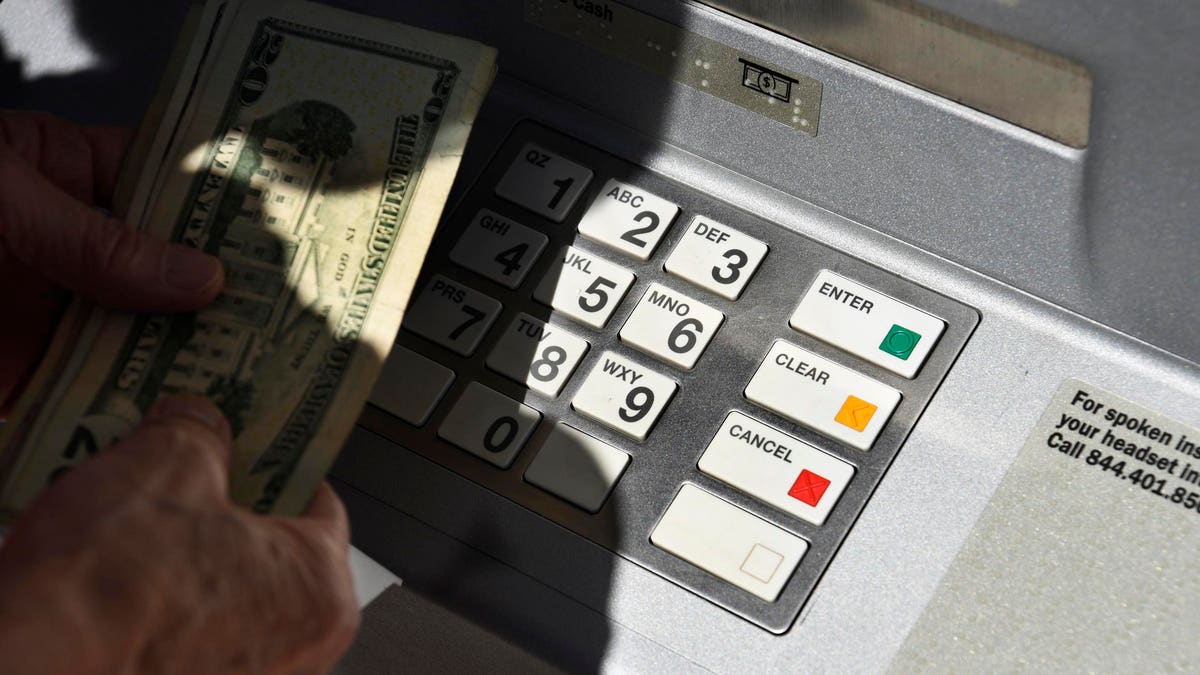The banking crisis is all investors can talk about. If you’re an optimist, you probably think it’s starting to wind down. If you’re a pessimist, you likely think it’s getting worse.
Here are two recommendations from two MoneyShow contributors: A cheap bank stock for the optimists … and a bank alternative for the pessimists.
Prakash Kolli, Dividend Power
Every now and then, the stock market overreacts. Investors sell stocks because of fear, and solid businesses are mispriced. Savvy investors take advantage, which is what you should do with PNC Financial Services
PNC
Warren Buffett’s net worth has grown to over $100 billion by purchasing mispriced stocks and waiting. Also, Buffett is seemingly a fan of bank stocks. His investment vehicle, Berkshire Hathaway
BRK.B
BAC
BK
TBBK
AXP
ALLY
Buffett’s investment size limitations probably keep him from buying smaller regional and community banks. But retail investors can take advantage of the recent failure of two regional banks and market fears by targeting stocks like PNC.
The firm was founded in 1845 in Pittsburgh. Today, it has a presence in many states, but its retail branch network is concentrated in the Midwest and mid-Atlantic states.
PNC operates through retail banking, corporate & institutional segments, and it also has an asset management group. It has over 2,600 branches and 9,500 ATMs.
At the end of Q1 2023, PNC had $325.5 billion in loans, $436.2 billion in deposits, and $562.3 billion in assets. According to Federal Reserve statistics, it is the sixth largest bank by assets in the US. PNC has a strong capital position based on its Basel III regulatory ratios. Furthermore, credit quality is strong, with net charge-offs at 0.24% and non-performing loans at 0.62%.
Banking sector worries have caused the share price to drop nearly 22% this year. Hence, the dividend yield has risen to almost 4.8%, nearly as high as during the COVID-19 pandemic bear market. Also, this value is about 1.6 percentage points more than the 5-year average.
Besides the yield, PNC’s dividend growth rate is attractive. The firm is a Dividend Contender with 13 years of growth. It has increased the dividend at a 14% CAGR in the last decade. Moreover, the payout ratio is only around 41%, providing confidence about dividend safety and future increases. In addition, it receives a dividend quality grade of B+.
PNC is undervalued based on the historical price-to-earnings ratio (P/E ratio). It trades at a P/E ratio of ~9.0X, less than the 5-year and 10-year ranges. Hence, PNC is a solid pick for investors seeking income and potential capital appreciation.
Recommended Action: Buy PNC.
Adrian Day, The Global Analyst
Ares Capital (ARCC) reported weaker earnings for the first quarter, due to lower origination fees and modest balance sheet deleveraging. But most BDCs, including Ares, have important characteristics that distinguish them from banks, and it can be bought here for long-term investors looking for yield.
Ares stock, along with other BDCs, fell from earlier highs amid the banking crisis in March. But that’s where the differences come in. Most importantly, BDCs employ far less leverage, and they match duration on their assets and liabilities (what an idea!)
Most of their debt also tends to be fixed rate while their loans are mostly variable. So, while the stocks will tend to be volatile, the better companies are well-positioned to survive and even profit from an economic downturn.
In the most recent quarter, credit metrics at Ares worsened slightly, continuing a trend of the last few quarter. But they remain above the company’s 15-year average and the BDC sector’s average.
It was not all bad (modestly bad), either. Core earnings (from loan income) were up 36% year-on-year, driven by higher interest rates on new investments. Earnings remain comfortably in excess of the dividend. The company’s NAV increased, to $18.45 a share, while the Return on Equity remains high, increasing to 12.7%.
After the deleveraging, the debt-to-equity ratio is below 1.1 times, very low, giving the company lots of dry powder for new investments. Going forward, the company expects origination fees to stay low in what it sees as a slow transaction environment. The first quarter of the year is usually the slowest, but this one was slower than normal.
However, the company still sees lots of potential deals; the number it looked at this past quarter was up by 14%. Longer term, the turmoil in the banking sector means banks are constrained in making new loans, to the benefit of the BDCs.
Ares also maintained its quarterly dividend––equating to over 10% on an annual basis. It also has $1.19 per share in spillover income, the equivalent of 2.5 times its regular dividend payout, providing ample cushion to supplement any weak quarters. It is trading at a 5% discount to NAV, and the company has a share buyback program in place for use when the discount widens too much.
Recommended Action: Buy ARCC.
Read the full article here











